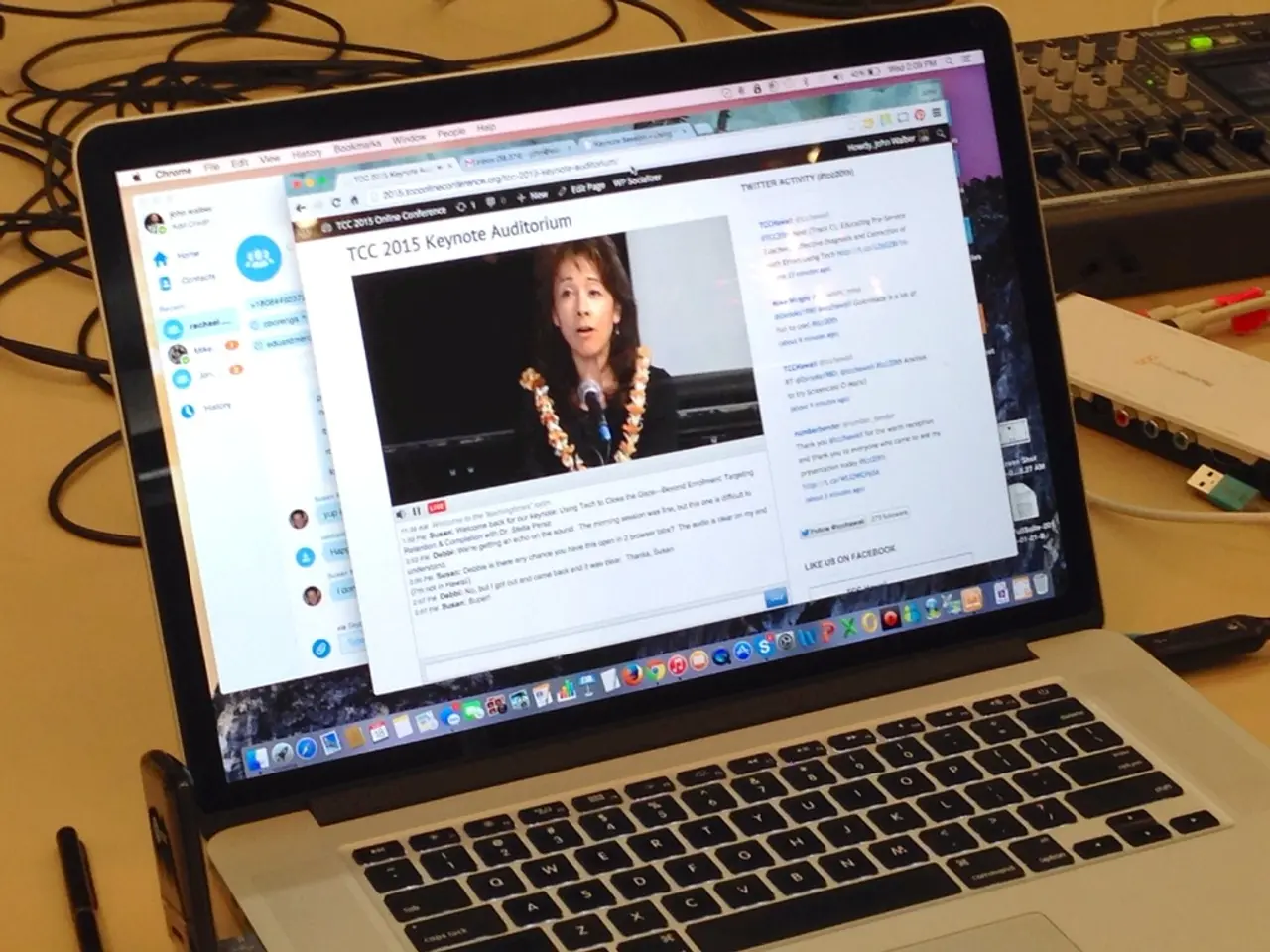Utilization of Artificial Intelligence in Rhineland-Palatinate Unveiled
In the heart of Germany, Rhineland-Palatinate is making a significant leap into the future with the integration of Artificial Intelligence (AI) across various sectors. From environmental monitoring to SME innovation, this dynamic region is leveraging AI to address challenges and seize opportunities.
One of the most promising developments is in the realm of early warning systems for extreme weather. AI is being employed to predict the impacts of droughts and heavy rainfall, with high-resolution data analysis from sources like Copernicus satellites combined with machine learning algorithms. By assessing local factors such as soil, vegetation, and terrain, these systems aim to accurately forecast ecological and economic damages at a very local scale. This approach not only integrates physical and ecological data but also communication science and psychological insights to ensure warnings translate into effective action [3][5].
Rhineland-Palatinate's commitment to AI is also evident in its simulation and software-based innovation hub. The High Performance Center Simulation and Software Based Innovation, facilitated by the Fraunhofer-Gesellschaft, encourages collaboration between companies, universities, and research institutions. This centre accelerates AI research and application, particularly in the field of digital technologies and mobility, supporting sustainable development and fostering innovation in both SMEs and larger companies [4].
The region's SMEs are also seizing the AI opportunity. Discussions among business leaders, scientists, and policymakers reflect a strong focus on creating political frameworks that encourage AI adoption in diverse business areas. This indicates a broad, cross-industry interest in leveraging AI to stay competitive in evolving markets [2].
Collaborative AI development across Germany and Europe is another key aspect of Rhineland-Palatinate's strategy. By working together to create common standards and infrastructures, the region aims to fully harness AI opportunities at both national and European levels [1].
AI is also making a significant impact in the healthcare sector. Researchers at the Fraunhofer Institute for Industrial and Applied Mathematics in Kaiserslautern are developing AI to help police and prosecutors detect fraud in care services, such as determining if a caregiver was supposed to be with different patients at the same time and recognizing forged signatures [6].
In the trades, AI is being used to relieve skilled workers, allowing them to focus on more creative tasks. A robot dog is even being developed in Ingelheim to take over the lighter tasks of a construction site manager, addressing the shortage of skilled workers [7].
Companies that use AI may also find it easier to attract apprentices, according to the HWK Koblenz [8]. AI-assisted systems have been installed on small rivers in the Eifel to improve flood forecasts, and Westeifel Works in Gerolstein wants to use AI to secure long-term jobs for people with disabilities in quality control tasks [9].
In steep slope viticulture on the Mosel, winemakers are using robots with AI for tasks such as soil cultivation, weed removal, and defoliation. The AI developed by the Fraunhofer Institute can also quickly and easily detect false statements in care service invoices, such as billing for services not actually provided [10].
AI is even set to bring more safety for bathers in swimming pools in Koblenz and Wittlich, detecting dangerous situations and raising alarms on lifeguard's smartwatches [11]. The "Eifelkreis digital" initiative in Bitburg, which includes companies like Bitburger Brewery, Tesla's plant in Prüm, and Westeifel Works, is seeking customized AI solutions [12].
With over 300 companies in Rhineland-Palatinate developing or applying AI methods in various fields, including industry, medicine, environmental technology, administration, and crafts, the region is clearly at the forefront of AI innovation [13]. This dynamic ecosystem is leveraging AI to address challenges from climate impact to industrial competitiveness and technological advancement.
In the realm of environmental technology, Rhineland-Palatinate is integrating artificial intelligence (AI) to develop high-resolution data analysis systems for early warning systems, predicting the impacts of extreme weather events with precision. These systems accurately forecast ecological and economic damages at a local scale, incorporating physical, ecological, communicative, and psychological insights [3][5].
The High Performance Center Simulation and Software Based Innovation, an AI and digital technologies research hub facilitated by the Fraunhofer-Gesellschaft, fosters collaboration between companies, universities, and research institutions to accelerate AI application [4].




